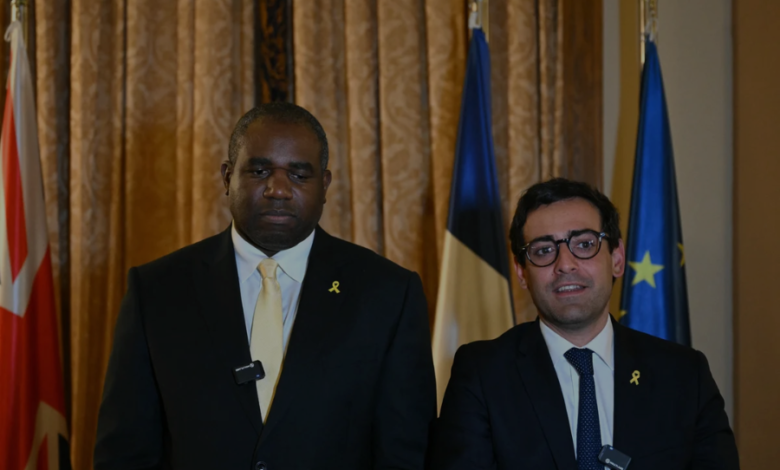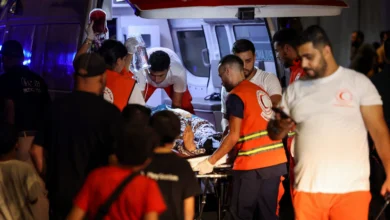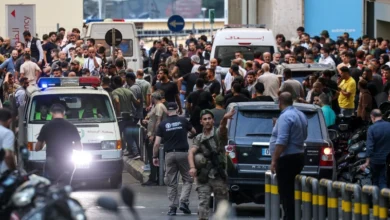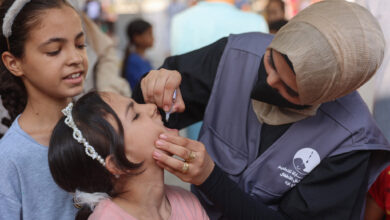Rising Tensions in the Middle East: Fears of Full-Scale Regional War Grow, David Lammy

UK Foreign Secretary David Lammy states that the Middle East is increasingly vulnerable to regional conflict. While global leaders are pressing for a truce between Israel and Hamas, there are rising fears for a further uptick involving Iran and its proxy militia warriors in Lebanon, Iraq, Syria, and Yemen.
United States Secretary of State Antony Blinken will visit Israel this weekend to encourage a ceasefire. Together with French colleague Stéphane Séjourné, Lammy has stated that the situation is at a critical point – Lebanon is at a ‘precipice,’ and the chance to end the war only in Lebanon becomes increasingly remote as Iran is involved and constant aggression of Israel on Hezbollah.
For the *Observer*, Lammy and Séjourné underline the need to prevent a “cycle of violence”: both sides of the Israeli-Hezbollah conflict were escalating the fight, and Iran threatened further escalations. Even the most vigilant efforts to sidestep the escalation path – and they correctly note that it would take only one miscalculation to embed the conflict in a much deeper and more intractable political and military environment – pose a significant challenge to the effort to find a political solution.
The crisis was taken to another level on Saturday following an Israeli attack in the Nabatieh province of southern Lebanon that took the lives of more than 10 Syrian refugees. Israel said the raid was aimed at a Hezbollah weapons warehouse; it is one of the most severe attacks on Lebanon since the war with Hamas began on October 7. Other IRGC-affiliated factions, including Hezbollah, have vowed to escalate their attacks on the Israelis until the conflict in the Gaza Strip is resolved.
Lammy and Séjourné’s statement has become the latest instance of boosted cooperation between London and Paris after a duo visit of the two countries’ representatives to Israel and the OPT for the first time in over a decade. They call it the ‘new spirit of cooperation’ needed for their countries, Europe, and the Middle East security.
They are further compounded by their apprehensions of Iranian revenge against Israel following the execution-style murder of Hamas’ political chief, Ismail Haniyeh, in Tehran last month, as well as the assassination of Hezbollah’s senior commander in Beirut.
Although Israel itself has not threatened Haniyeh’s assassination, its intelligence agency, Mossad, is famed for the politics of extra-judicial killings overseas.
Lammy and Séjourné insist that nothing benefits anybody in the region if an all-out conflict erupts; they urge everyone to act prudently and diplomatically; they warn that any Iranian attack will be catastrophic, especially given the efforts currently being made to reach a ceasefire for Gaza.
Blinken’s visit to Israel occurs as the world tries to negotiate a ceasefire as talks in Doha fail. While some mediators in Qatar and Egypt and U. S President Joe Biden have shown optimism about the issues, Hamas has dismissed all this positivism. ‘They are illusion… ’ said Sami Abu Zuhri, a member of Hamas’s politburo, responding to third-party claims of progress.
Although Hamas and Israel have some concordance on a three-staged process an American Biden proposed in May, the peace talks are still frozen due to some disputes on essential aspects such as the location of the Israeli forces on the Gaza-Egypt border and the freedom swapping order.
The call for a ceasefire is made at a time when the situation in Gaza is becoming more and more catastrophic in the humanitarian aspect. Palestinian authorities have put the death toll figure over 40 thousand, with the strip reporting a case of polio after a quarter of a century. Recently, an Israeli airstrike in central Gaza targeted a residential building and killed 15 of the same family, increasing the tension.
IDF has also issued new uprooting orders, removing over 170000 residents in the central and southern Gaza Strip. These orders, which infringe upon previously identified humanitarian ‘protected zones,’ have shrunk the referred ‘humanitarian zone’ down to only 11 percent of the total Gaza Strip from the UN Office for the Coordination of Humanitarian Affairs.
Current efforts to reduce the tensions between the two countries, thereby avoiding a full-scale war situation in this region, are still in their anemic stage. Still, the chances of more bloodshed are very high.




